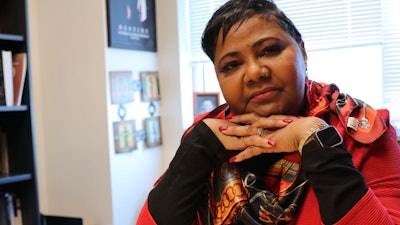In October 2022, the National Center for Educational Statistics (NCES) released a new report where, again, Black students lagged behind white students on the National Assessment for Educational Progress (NAEP) also known as the Nation’s Report Card. Specifically, in comparison to 2019, the previous assessment year, average mathematics scores for grade 4 students were lower in 2022 for American Indian/Alaska Native, Asian, Black, Hispanic, students of Two or More Races, and white students (see https://www.nationsreportcard.gov/mathematics/nation/groups/?grade=4). Digging further into the data, we found that Black students scored 29 points lower than white peers. Dr. Donna Y. Ford
Dr. Donna Y. Ford
We begin this commentary with an unapologetic declaration: There is nothing ‘wrong’ with Black and other disenfranchised minoritized students who score lower on tests than White students. There’s something wrong with the tests!
In preparation for this op-ed, we reflected on the first time we became aware of test bias and unfairness. Years later, our experiences still haunt us. Years later, as higher education faculty in gifted and talented education, school counseling, mental health, and college and career readiness, we have the same and more concerns. We are outraged and frustrated by the slow progress in eliminating test bias and inequities, and the title of this commentary illustrates this. Black students know more than what those damn tests claim to measure.
Ford: My earliest recollection of racialized test bias and unfairness took place when I had my son tested for early school entrance in the 1980s. The White female school psychologist administered what I, now a leading scholar in gifted and talented education, am convinced was the WISC. After the lengthy test, she informed me that my son scored above average but was ‘socially incompetent’ because he was unfamiliar with items such as a sofa (he said couch) and an outlet (which he called a plug). I was angry, dumbfounded, and disappointed by her label and forced choice: (a) wait a year to enroll him, and my son would be the ‘top’ students or (b) enroll him now, and he would be one of the lowest performing students. I wanted my son to do well, so I waited. He was advanced but soon disengaged due to boredom based on lack of challenge. This experience served as the fundamental reason I focused my dissertation and first book on gifted and talented Black students who became underachievers. Three decades later, my son’s all-too-common experience with testing and miseducation fuels my keen sense of racial inequities, dedication to preparing educators to be anti-racist and culturally competent, and my unwavering commitment to recruiting and retaining Black students in the virtually all White worlds of gifted and talented education and Advanced Placement. Once recruited, they want and need to be retained, which requires having anti-racist, culturally competent educators who are advocates, upstanders, and allies. Dr. Erik Hines
Dr. Erik Hines




















